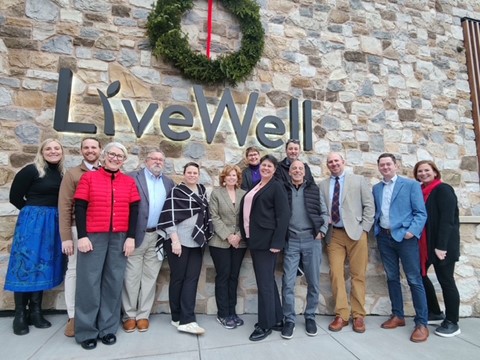Author:
Kim Warchol, President and Founder of DCS at CPI
The Impact of Dementia Capable Care Training:
- Increased staff confidence
- Provide person-centered care
- Understand behavior as communication
- Address needs of patients and families
Situation:
St. Croix Hospice and its dedicated care team are committed to ensuring comfort and quality of life for patients facing a terminal diagnosis, and their loved ones. What began in 2008 in Minnesota has grown rapidly to offer services across multiple locations in 10 midwestern states. Expanding their service region not only meant an increasing overall patient census, but an increase in patients living with dementia. In 2022, 21% of their admitted patients—almost 1 in 4—had a primary or secondary dementia diagnosis.
This growing dementia-diagnosed population led St. Croix Hospice to make the decision in 2019 to invest in training that would enable their staff to provide the absolute best possible dementia care to patients and their families.
Solution:
“It is a mandatory training for all full-time clinical staff,” says Laura Christensen, Director of Education at St. Croix Hospice. “Whether it’s nursing or hospice aide or music therapy or massage therapy or chaplain or social worker, they’re all getting this training. I think that the benefit to our staff is they feel prepared to provide the best clinical care for our patients.”
“Having the extra dementia training does set us apart when we serve facilities that do not have clinically licensed or trained staff. They are always grateful for our expertise in the building. They need that extra assistance to appropriately care for these complex residents.”
-Laura Christensen
Director of Education
St. Croix Hospice
Kiley Logan, a social worker, was among the first to be trained in Dementia Capable Care, and among the first to see staff reactions as she trained them in the new program. “That ‘light bulb moment’ would go off for different people at different times. Learning where that person living with dementia is and start with them there. We now have more than 1,800 trained staff demonstrating the skills that they’ve learned from dementia training and providing the best person-centered care.”
“Our RN case managers lead patient care,” adds Bethany McKenzie, an RN educator. “But by training our aides, chaplains, and social workers, we have additional staff support that helps the whole team recognize declines and better care for patients. It’s bringing the full picture of the patient to every staff member that we have and then allowing them to recognize when something might need to be addressed.”
Gain the knowledge and skills to optimize function, safety, and quality of life for those you serve and certifications to distinguish yourself or your organization as a leader
Share This Post:
Tell Me More!
Learn how our solutions can benefit you or
your organization.
Continue Learning:




